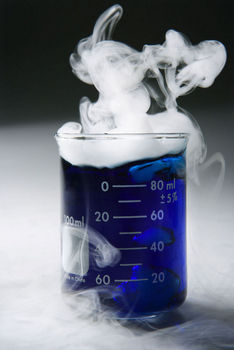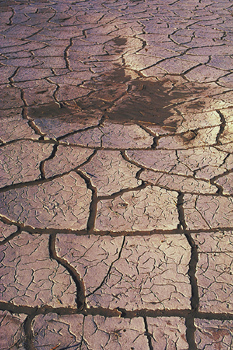Stay Informed
Popular Articles
- Hiatal Hernia: Hidden Cause of Chronic Illness
- Small Intestinal Bacterial Overgrowth (SIBO)
- Applied Lymphology: Unlocking the Secret to Pain Relief
- An Introduction to Constitutional Iridology
- The Low Down on Liver Detoxification
- An Energetic and Emotional Approach to Cancer
- Fat Facts
- Marrow in the Bones
- Blood Type and Nutrition
- Cardiac Herbs: Beyond Hawthorn
Quick Search
The School of Modern Herbal Medicine




Quick Guide to pH Balancing
- 5/11/2008
This is page 4 of a four-part article.
 Balancing Excess Acid
Balancing Excess Acid
Since most Americans eat a lot of heavy starches and high-protein foods but very few fresh fruits and vegetables, most Americans tend to be overacidic. Even if their readings show an excess of alkalinity, this is often because their bodies are no longer flushing the excess acid properly. Therefore, we will first discuss what to do when one is overacidic.
When your pH readings are consistently over acidic, you need to start by breathing more deeply and managing your digestion better. Also take a serious look at your stress level. If you are under a lot of stress, take some adaptogens and/or some nervines and learn how to manage your stress better. You will also want to eat more alkalizing foods such as fresh fruits and vegetables. Dark green leafy vegetables are especially helpful because they are rich in potassium, magnesium and calcium—and because they improve the digestion of protein by increasing hydrochloric acid production. When people aren't willing to eat their greens, Ultimate GreenZone mixed with alkalizing fruit juices like apple, pineapple, peach or apricot can help, using freshly made juices whenever possible. I also find The Feast from URI International to be a very beneficial alkalizing food. It also tastes good, which makes it easy to take.
Supplements containing alkalizing minerals can also be helpful. Potassium and Magnesium are usually the most helpful, as they are the first alkaline minerals to become depleted in over acid conditions. I do not recommend supplements with a calcium carbonate base such as coral calcium, as they interfere with hydrochloric acid production which will actually drive your tissues toward higher acidity. Magnesium is particularly helpful when the overacid condition is accompanied by anxiety or muscle tension. Potassium is needed when there is water retention.
Balancing Excess Alkalinity
Remember that the overalkaline readings don't necessarily mean the body is really overalkaline. True overalkalinity can kill a person quite rapidly. What is usually happening is that the body isn't eliminating waste acids properly. The key here is the acidity or alkalinity of the saliva.
Digestion is usually poor with excess alkalinity, and the eliminative organs, especially the liver, lymphatics and kidneys are not working properly. Detoxifying herbs such as Enviro-Detox or the Tao He Cleanse may be helpful. KB-C, a Chinese formula for the kidneys, is particularly helpful. KB-C will help strengthen the ability of the kidneys to flush acid waste from the blood. It has the ability to strengthen the bones and tissues by allowing the body to hold on to its alkaline mineral reserves.
Vegans (vegetarians who eat no animal protein whatsoever) often wind up having overalkaline readings. They sometimes avoid heavy protein foods because they simply can't digest them and feel better when they don't eat them. Using digestive enzymes (Proactazyme and Protease Plus) and PDA and making certain that adequate amounts of protein are consumed can really help here.
Although the best solution for vegans with overalkalinity is to increase animal protein in the diet (i.e. eggs, fish, dairy, etc.) and decrease starches, most vegans are unwilling to do this. If this is the case, simply reduce the intake of starches, and increase protein consumption from legumes, nuts and other vegetarian sources.
Vitamin C may be helpful in cases of overalkalinity. Supplements with acid-forming minerals like sulphur (MSM, glucosamine sulfate, garlic, etc.) may also be helpful.
Keep in mind that pH is not the only factor in balancing biological terrain. The six tissue state model we use in our CHC program is a more complete model of biological terrain. However, pH balancing is a great way to get started when it comes to thinking about health in terms of balancing the body rather than fighting disease.
